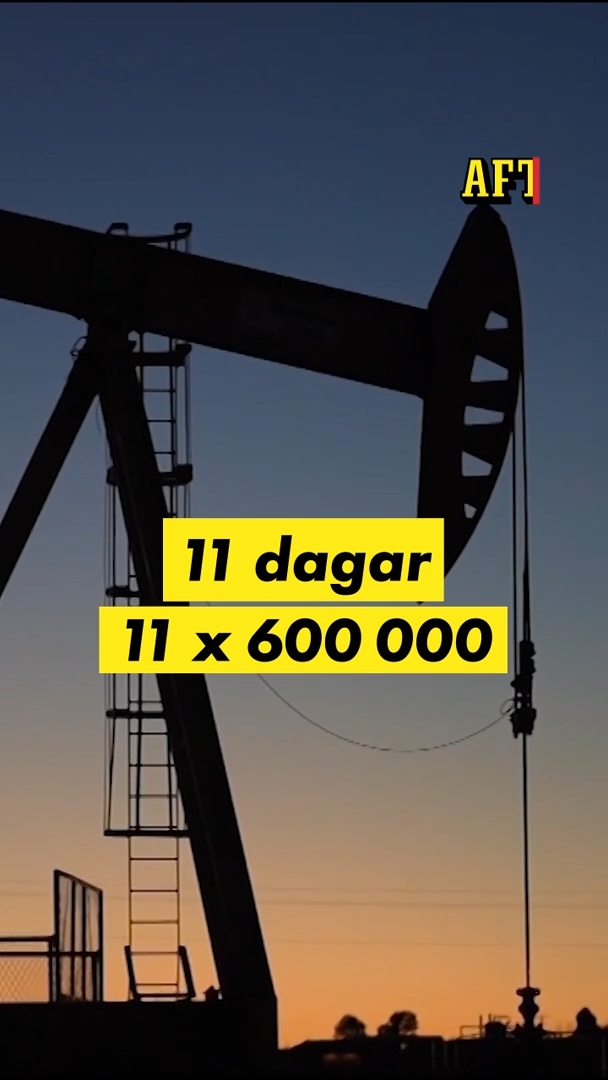
China
The West is not to blame for the failure of the climate meeting
Wolfgang Hansson
This is a commenting text. Analysis and positions are the writer's.
Updated 14.58 | Published 14.45
Quick version
- The Baku climate summit ended in disappointment due to unrealistic
financial demands from developing countries and the reluctance of rich
countries to commit to large contributions.
- Saudi Arabia and other oil-producing countries have resisted progress in reducing fossil fuel use, despite earlier agreements to move away from fossil fuels.
- Donald Trump's impending presidency and potential actions, such as leaving the Paris Agreement, create uncertainty about US involvement in international climate negotiations.
Much of the media coverage has focused on the fact that rich Western countries did not want to contribute enough to poor countries.
But it is not the West that has been the real big culprit but other countries.

This is how much oil the host country produces during the climate meeting
Right from the start, the focus of the meeting in the capital of the oil country of Azerbaijan, Baku, was on the wrong things.
It was all about how much money the rich world should contribute to help the poorer countries adapt their societies to the climate. Since the developing countries are often hit harder by climate change, even though they account for a very small part of the emissions, it is a reasonable measure.
Already in 2009, the rich countries promised to contribute 100 billion dollars a year. A goal that was reached first in 2022.

Today, the reality looks very different. China is a rich and well-developed country that is almost single-handedly responsible for a large part of the last decade's increase in emissions in the world. Saudi Arabia is hardly one of the world's poor nations.

But China and Saudi Arabia refuse to give up their status as developing countries in the climate context.
Unrealistic goal
Then it is perhaps not so strange that the rich world hesitates to commit to large contributions.Especially in today's geopolitical situation, where the West primarily sees the authoritarian China as a dangerous challenger in a number of areas.
Now Cop29 ended with the rich countries promising to inject 300 billion dollars, roughly 3,300 billion Swedish kronor, a year for ten years. That is a threefold increase compared to today. Even taking inflation into account, it is a clear increase.
The poor countries are still not satisfied. They had requested $1.3 trillion, more than a tenfold increase.
From the very beginning, it was a completely unrealistic dream goal that set the stage for disappointment.
The meeting began just a week after Donald Trump was elected the next president of the United States. He has threatened to withdraw from the Paris Agreement, the 2015 climate agreement.
With that knowledge, it was completely unthinkable that the rest of the Western world would promise gigantic sums. Unless the US joins in and shares the burden, there is no such money.
The Ukraine war is another restraining factor.
Saudi Arabia is sabotaging
Keeping the rise in temperature down is fundamental if climate change is to be limited. In other words, agreeing on how emissions should be reduced is central to every climate meeting.So what happened on that front in Baku?
Absolutely nothing.
During the previous climate meeting in Dubai, Cop28, the countries managed to agree on a document in which they promised to embark on a path away from fossil fuels. It was seen as a great success.
This year, the idea was that it would be followed up with concrete plans on how it should be done.
But Saudi Arabia, one of the world's largest oil producers, effectively put an end to that.
Few governments want to openly criticize Saudi Arabia, but delegates at the meeting describe how from day one the oil country deliberately sabotaged all attempts to reach agreements on reduced use of fossil fuels.

This is in fact the big scandal at the climate summit.
Trump's guest of honor
How can the temperature increase be kept at a maximum of 1.5–2 degrees if the countries of the world continue to use fossil fuels as if nothing has happened?The major oil-producing countries are of course worried about losing money if they can no longer sell as much oil. But without a phasing out of oil, fossil gas and coal, climate change cannot be overcome.
Saudi Arabia and the Gulf states have excellent conditions to become major exporters of solar energy instead.
Canada's former climate minister and chair of the UN expert group on net zero emissions, Catherine McKenna, summed up what many in the world are feeling.
- I am so sick and tired of Saudi Arabia's opposition to every proposal that means we move away from fossil fuels. We are in a climate crisis caused by fossil fuels.
When Donald Trump recently attended the UFC's fighting gala in Madison Square Garden in New York, he was joined at ringside by, among others, the Saudi chairman of the board of the state oil company Aramco.
A premonition of what awaits the world's climate work at the end of January when Trump takes office
Inga kommentarer:
Skicka en kommentar